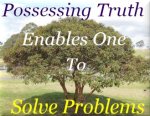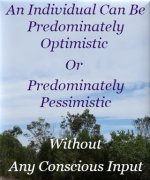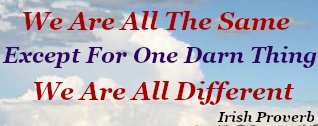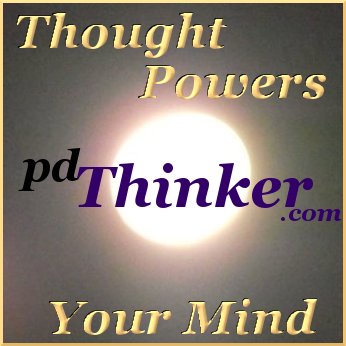Open Source Licenses Are For Everybody
Part 5 Part 4
Appreciating Open Source Licenses
Underpinning the explosive growth of the Internet is Open Source Knowledge. Content wise and technology wise.
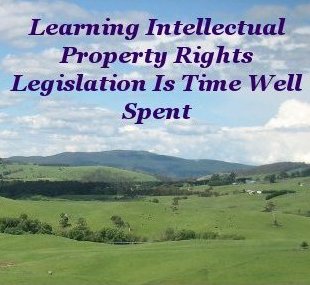
Underpinning the integrity, and the viability, of Open Source Knowledge, we find Open Source Licenses.
Open Source Knowledge and Licenses positions Humanity squarely on the path that leads to an equitable World.
Open source Licenses are a voluntarily adopted adjunct to any Nation's existing legal system, in relation to intellectual property.
Comprehending the implications and functioning behind Copyright Law, (and intellectual property rights law per se) from the standpoint of a Rights Holder and a Consumer of product delivers one with a greater appreciation of open source licenses and their value. Value apparent as an individual in particular, and to wider society in general.
Learning intellectual property rights legislation is time well spent.
Attitudes Towards Copyright
To emphasize the wide variance in understanding of, and Attitude towards, copyright and freedom of information, it is sobering to observe the posture of entities we expect to take the lead in Humanities quest for Civilized Progress.
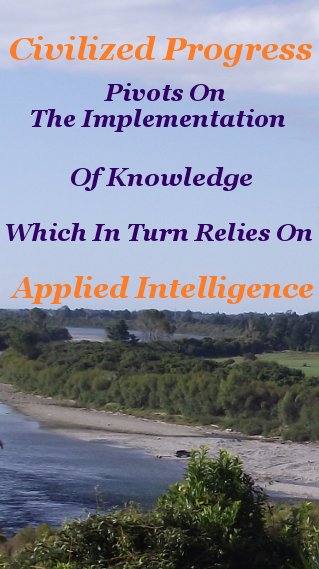
Civilized Human progress has always pivoted on the wise implementation of knowledge, which in turn depends on lucidly applied Intelligence.
Amongst the three levels of Executive Government in this author's Australian jurisdiction, these three bodies hold rather different viewpoints.
Bear in mind too, that online Copyright Policies are usually website specific.
For instance, Government Departments, are usually autonomous in respect to copyright policy, but are (generally) encouragingly consistent with providing clarity, brevity, and readily found access to policies.
The Australian Federal Government is the standout Leader, unambiguously releasing copyrighted public sector information under an open source Creative Commons Free Cultural Works compatible license.
The same license this website uses.
The only improvement in respect to freedom of use, on this top of the range permissive license, is to deposit information in the Public Domain. As does the US Government domestically.
In addition to this unambiguous stance, each page has a link to a clear and concise copyright policy page.
Caution Required
Even with such explicit permissiveness as provided courtesy of Open Source licensing it is still the responsibility of an individual to ascertain they are free to copy a work within the guidelines of the Creative Commons license.
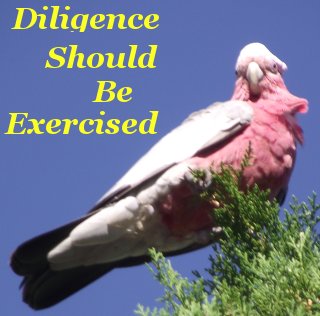
The same due diligence should be exercised whenever one desires to utilize copyright works, whatever the source.
More Resources
GitHub, a modern, online, collaboration platform, offers a Thoughtfully presented introduction to Open Source, and relativity of Licenses.
This Creative Commons Frequently Asked Questions page is a very good resource and reference to bookmark.
Freedom Defined .org has a competent definition of Free Cultural Works, and more, that you may find of interest.
State Government Website
The NSW State Government website conventionally follows the 1968 Australian Copyright Act. With the notable exception that permission to reproduce website content is extended for non commercial, in-house and personal use.
To copy beyond that, formal permission must be obtained. Doing so can be accomplished via an address, supplied in context, on the clearly written, intelligently concise Copyright Policy page. So refreshing.
This approach may seem to be way less convenient than a Free Cultural Works License. And it is, but a written application carries the advantage of knowing definitely that one possesses permission to copy for a given purpose.
Local Government Website
My otherwise astute, capable, and competent, local administration's website was devoid of any useful copyright information.
It offers a brief mention in a legal disclaimer written in a threatening rather than informative tone. This document indicated a distinct lack of understanding of the relationship between Intellectual Property Rights and Creative Commons Licenses.
Considering local is the level of government that is closest to the people it serves, this author was expecting an almost informal presentation of a raft of helpful info. Very disappointing.
Salient Reminder
The above microcosm of viewpoints is a salient reminder of the expeditious need for a world-wide, common, unmistakable, generic Code Of Conduct. A Code that clearly describes the intellectual property rights status of any given body of knowledge.
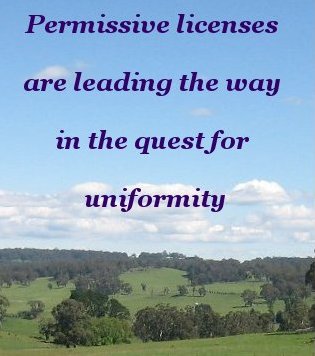
Permissive licenses are indicating the way forward in the noble quest for uniformity across all jurisdictions, in our intricately interconnected world.
As individuals, we can hasten this process of uniformity, by applying open source licenses, wherever appropriate, to our own Creative Efforts.
Despite the bluntly stupefying complexity of Intellectual Property Legislation throughout the World, one can gain a working knowledge of both Copyright Law, and Open Source Licenses that are applicable to his or her current circumstances.
By diligently studying your own Jurisdiction and refusing to be intimidated by the complexity of Legislation, and the ever present loud hairy chested tub thumping of vested interests, you will come away confident that if you do need to use copyrighted work you will know how to go about it with equanimity. Equally significant, you will know just how and whether to share your own Intellectual Efforts.
Most importantly, you will have increased the depth and breadth of your own self reliance.
Personal Development Rocks!
Part 5 Part 4
Next - Choice And Fair Play
